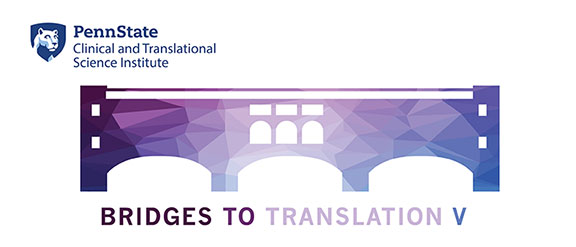Project recently funded by NIH is example of pilot grant program success

How adversity early in life can lead to susceptibility to disease will be studied through a project initially funded through Penn State Clinical and Translational Science Institute’s Bridges to Translation pilot grant program. Idan Shalev, PhD, Mark T. Greenberg Early Career Professor for the Study of Children’s Health and Development, and assistant professor of biobehavioral health, was recently awarded funding through the National Institute on Aging to better understand how immune cells react and adapt to stress.
Penn State Clinical and Translational Science Institute provides the tools, resources and training to help the Penn State community move its health research more efficiently and effectively out of the science laboratories and into use by the people and communities who need it. Its pilot grant program helps build collaborations and works to remove roadblocks that prevent research in the laboratories from getting to patients in healthcare clinics. It also provides researchers an opportunity to explore novel ideas to collect the data needed to apply for external funding opportunities, like those from the National Institutes of Health.
“The funding provided by Penn State Clinical and Translational Science Institute was crucial for this study,” Shalev said. “It allowed us to initiate and run a pilot study on 12 participants which was included in the newly funded NIH grant proposal. Our pilot study enrolled 12 individuals, six of whom experienced significant early-life adverse events, which we labeled the ‘risk group’ and six who did not. It provided encouraging preliminary data in line with hypothesized relationships and a proof-of-concept to build on for the NIH grant.”
Shalev will determine immune cell response by seeing how specific genes are activated over a short period of time in response to experimentally-induced psychological stress. Results of this study will lead to new knowledge about which genes are expressed in response to stress, and whether the response is affected by either an earlier exposure to adversity, by the shortening of the ends of DNA strands due to aging or by mental health concerns.
Shalev’s study uses the Clinical Research Center at University Park, an institute-sponsored service for Penn State studies. Clinical Research Centers provide infrastructure for investigators who conduct research with human subjects. Centers include highly experienced research staff including registered nurses, research coordinators, dietitians, pharmacists, research support staff and administrative personnel. A Clinical Research Center is also available at Penn State College of Medicine.
“We utilize their highly experienced nursing staff for physical examination, body measurements and blood draws,” Shalev said. “We conduct all experiments at the Clinical Research Center as well as process all biological samples for the study. Overall, my experience using the Clinical Research Center services was excellent. Without the support of the center, we would not be able to pursue this innovative study.”
Shalev was awarded $275,000 for his two-year project, “Temporal Genomics Mechanisms Underlying Disease and Aging” through the National Institutes of Health’s Exploratory/Developmental Research Grant Award, commonly called an R21 grant. This award is intended to encourage exploratory/developmental research by providing support for the early and conceptual stages of project development.
“We are always thrilled to hear how studies that the institute saw potential in show viability and promise to advance health and help people,” Dr. Lawrence Sinoway, director, Penn State Clinical and Translational Science Institute, said. “Dr. Shalev’s work is the latest example of the institute’s investment leading to important external funding to further research. We look forward to seeing what future successes come from his team’s work.”
Shalev recognizes the role the Clinical and Translational Science Institute had in advancing his idea, whose support he appreciates.
“It has been a tremendous privilege to receive the funding from the Clinical and Translational Science Institute to advance my research program,” he said. “It is a fantastic resource for Penn State researchers. As I said before, without this support, we would not be able to pursue this innovative study.”
See information on the Clinical Research Centers here.
Request a consultation to see how the Clinical and Translational Science Institute can benefit a study via the service request form.
Since its inception, the institute has awarded about $3.1 million in its pilot grant program, which has led to almost $35 million in external funding to continue promising research projects.
If you're having trouble accessing this content, or would like it in another format, please email Penn State Health Marketing & Communications.
